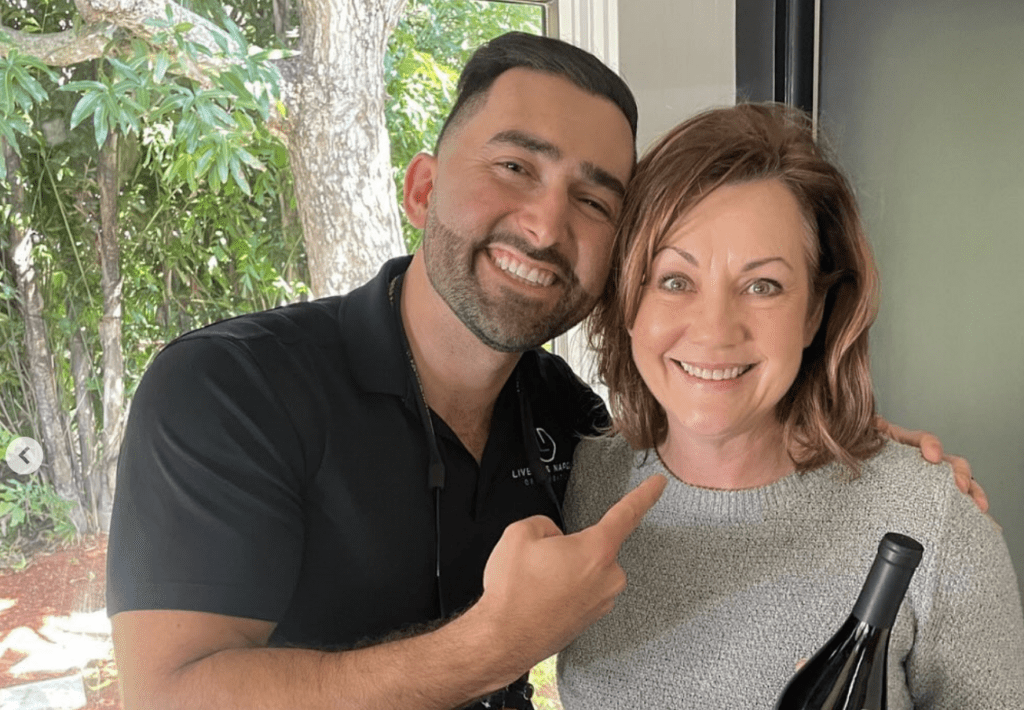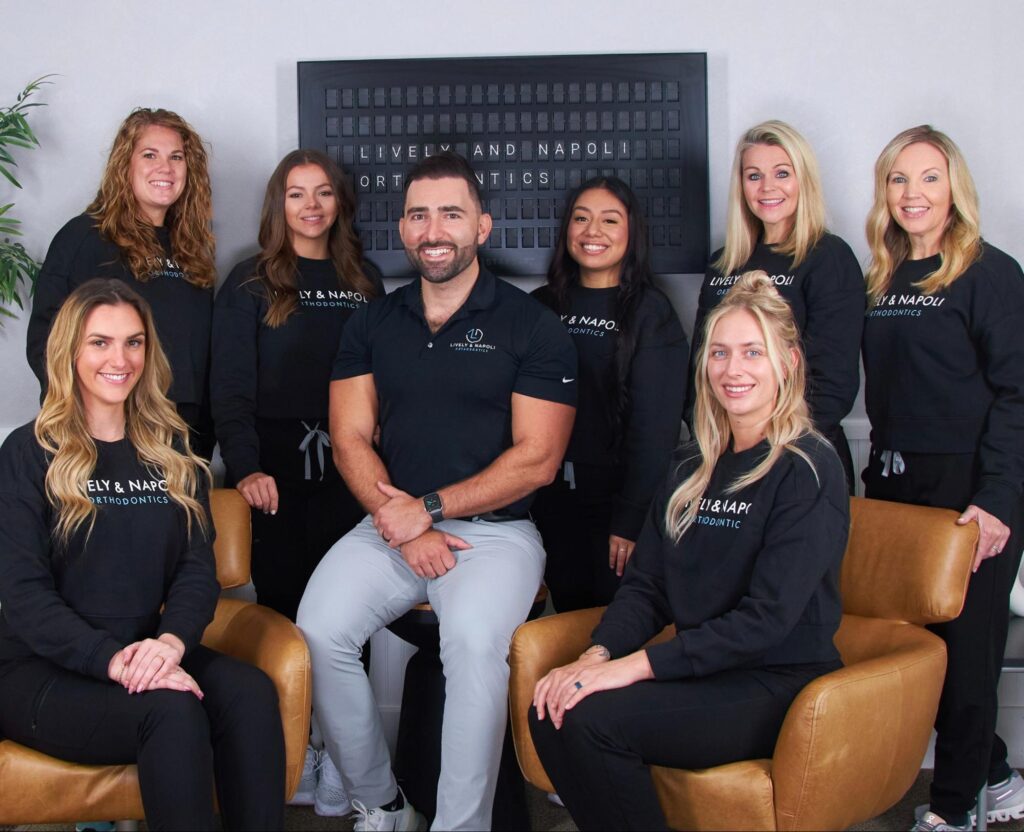Dentistry and orthodontics – they may seem like very similar fields, but when it comes to your dental health care, they can be surprisingly different. Both professionals are here to make you smile, but from the scope of their practice to their approaches to care, there is a time and a place for both doctors. So what’s the difference between an orthodontist and a dentist? The Lively & Napoli Orthodontics team is here to explain.
Orthodontists vs. Dentists In Practice
Just like with any medical field, oral health includes many sub-specialties. Dentistry is like a general practitioner, whereas orthodontists are specialists in a particular subfield of dental care that involves the movement of facial bones, among other things. This difference in specialization affects the scope of what they are qualified to do on a daily basis.
What does a dentist do?
Dentists provide a wide range of general services aimed at maintaining oral health as well as diagnosing and treating various dental conditions. This work includes things like preventive care, such as cleanings and exams, restorative work like fillings and crowns, and cosmetic procedures to enhance the appearance of teeth like whitenings or veneers – but it does not include shifting the teeth in the mouth, which requires an extra level of training.
What does an orthodontist do?
Orthodontists, on the other hand, specialize in the diagnosis, prevention, and treatment of dental and facial irregularities. Their practice focuses on creating alignment and balance within the mouth, which often involves the use of braces, aligners, and other corrective appliances. Orthodontists are experts in managing tooth movement and guiding facial development, which not only contributes to a more aesthetically pleasing appearance but also promotes better function and health of the oral cavity.
Working Together for Your Smile
To give you the best possible treatment and provide comprehensive oral health care, dentists and orthodontists often work hand-in-hand. This collaboration ensures a more holistic approach to your dental needs.
Comprehensive Care Coordination
Dentists and orthodontists work closely to coordinate care plans for our patients. This teamwork is essential, especially for complex cases where dental health issues may impact or delay your orthodontic treatment. By sharing insights and treatment progress, your dental healthcare team gives you a seamless care experience and the happiest smile possible.
Referral & Treatment Planning
General dentists often identify issues that require orthodontic intervention and refer patients to orthodontists for further evaluation and treatment. This referral process is a critical step in addressing dental and facial irregularities that can affect your overall oral health and smile aesthetics.
Joint Management of Oral Health
Dentists and orthodontists work together to manage our patients’ oral health, ensuring that issues like cavities, gum disease, and other conditions are treated before, during, and after orthodontic treatment. This collaborative approach helps in maintaining the integrity of your dental health and the effectiveness of your orthodontic treatment.

Differences In Education & Training
One of the main reasons orthodontists and dentists are qualified to practice different areas of dental care is the level of training and experience they require to do their jobs effectively. Both professionals participate in varied Here’s how dentists and orthodontists become experts in what they do.
Both Start with Dental School
All dentists and orthodontists alike begin their careers with a foundational education in dental medicine or surgery. This typically involves four years of postgraduate study in dental school, where they learn the broad spectrum of dental care, from diagnostics to various treatment modalities.
This rigorous training prepares them for the diverse challenges they will face in general practice, ensuring they can provide comprehensive care for their patients’ oral health needs, but it does not cover the essentials for orthodontic practice. That’s where an orthodontic residency program comes in.
Some Move On to Orthodontic Specialties
Are orthodontists dentists? The answer is yes! The difference is that following their general dental education, orthodontists like Dr. Lively and Dr. Napoli further their expertise with an additional 2-3 years of specialized residency training in orthodontics. This phase is intensely focused on the science and art of aligning teeth, correcting malocclusions, and optimizing facial aesthetics, and through this advanced training, orthodontists gain the unique skills necessary to design and implement treatment plans that transform smiles and improve dental function.
When To Visit an Orthodontist vs. a Dentist
Practically speaking, deciding between seeing an orthodontist or a dentist comes down to your needs and goals.
See a dentist if…
Dentists are your go-to professionals for routine dental care. You should schedule a dental appointment for:
- Routine dental check-ups and cleanings to maintain oral health.
- Common dental issues such as cavities or gum disease.
- Restorative treatments like fillings, crowns, or bridges.
- Diagnosis and treatment for tooth decay or gum disease
- Primary care for a wide range of conditions affecting the teeth, gums, and mouth.
See an orthodontist if…
Orthodontists specialize in correcting the improper alignment of teeth and jaws. You should schedule an orthodontic appointment for:
- Misaligned teeth or overcrowding that requires correction.
- Bite problems, including overbite, underbite, or crossbite.
- Concerns about the development of the jaw in adults or children.
- Specialized treatments using braces, clear aligners, or other corrective appliances to improve smile functionality and appearance.

Straight Smiles, Here We Come!
So, orthodontists vs. dentists: which should you choose? Sometimes you need a dentist, but when it’s time to straighten your teeth, you know where to turn. Our team of experts provides comfortable treatments with a personalized touch – all with the years of experience and training to back them up. If you’re ready to get started, schedule your free consultation in Stuart today!
